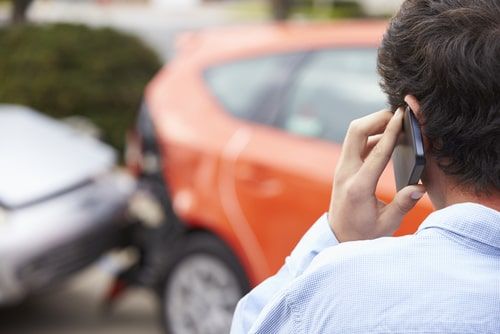
About 16% of all drivers in California are uninsured. (See https://www.iii.org/fact-statistic/facts-statistics-uninsured-motorists). Of those who carry liability insurance, a majority carry only the state minimum coverage of $15,000 per injured person (this will go up to $25,000 in 2025).
If you are in an accident where you are badly injured, the odds are good there will be no coverage or inadequate coverage. How can you protect yourself and make sure you receive fair compensation if you are injured? You can and should purchase substantial uninsured/underinsured motorist coverage.
By “substantial,” I mean $300,000 to $500,000 or more. It is actually one of the less expensive line items on a typical auto policy, compared to collision, liability or comprehensive coverage.
The basic provisions of the California Uninsured Motorist Act are in Insurance Code §§ 11580.2-11580.5. The Uninsured Motorist Act requires every automobile liability insurance policy issued in California to include coverage designed to compensate insureds (or their heirs or legal representatives) for bodily injury or wrongful death inflicted by the owner or operator of an “uninsured vehicle.”
If not expressly provided, minimum UM coverage will be deemed included by law. See Ins.C. § 11580.2(a); Smith v. State Farm Mut. Auto. Ins. Co. (2001) 93 CA4th 700, 711-712.
A person injured by an uninsured or underinsured motorist can open a claim with her own carrier, which will then commence the claims process. Many of these claims can be resolved without litigation, especially if the case presents policy limits exposure.
The claimant is limited to the policy limits. So if there is a $100,000 policy limit and the claimant has broken bones requiring surgery, the claim very likely exceeds the policy limit and the carrier should promptly pay it.
Uninsured motorist coverage is subject to reduction for payments made by a workers compensation policy and/or medical payments coverage. See Ins. Code § 11580.2, subd. (h)(1).
Note that where a person is injured by an underinsured motorist, the injured person must first exhaust the available policy limits on the insurance carrier by the other driver. This amount will then be a credit to the claimant’s own underinsured motorist carrier.
For example, if the underinsured vehicle has a $15,000 policy, the claimant would settle that aspect of the claim. If the injured person has $100,000 in underinsured coverage, there would be $85,000 remaining for the claimant to recover, if the claim has that much value.
Underinsured motorist benefits are subject to reduction for payments made to any and all insureds by any person that may be legally liable for the injury.
Thus, e.g., the insurer may receive a dollar-for-dollar credit for payments received from:
- The underinsured vehicle’s owner, operator or insurer,
- A vehicle manufacturer liable under product liability,
- The underinsured motorist’s employer (or employer’s insurer) liable under respondeat superior,
- Workers’ compensation insurance,
- Automobile medical payment insurance, or
- Any other insured under the liability policy.
See Ins.C. § 11580.2(p)(4) & (5); Hartford Fire Ins. Co. v. Macri (1992) 4 C4th 318, 328.
For every claim, the carrier has an obligation to investigate the claim and make a reasonable, good faith evaluation.
Under California’s Fair Claims Settlement Practices Regulations, §2695.7 (b)(1) and (c)(1), made applicable by Insurance Code section 790.034, the carrier must state in writing the bases for its determination of the value of claim.
If the carrier does not promptly and fairly evaluate the claim and make an offer to resolve the claim, this can give rise to a later claim for insurance bad faith. In the most common situation, the insurer delays resolution and fails to “make a good faith effort to obtain a prompt, fair and equitable settlement of their insureds’ claims.” (See Wilson v. 21st Century Ins. Co, (2007) 42 Cal.4th 713, 723-724; Brehm IV v. 21st Century Ins. Co. (2008) 166 Cal.App.4th 1225.)
If the claimant and the carrier cannot agree on claim value, the claim proceeds to binding arbitration (there is no court or jury trial under the Act).
The arbitrator will usually be a retired judge or experienced attorney mutually selected by the parties. UM arbitrations require knowledge of the law and evidence, so it is advisable to retain an attorney for this proceeding.
Contact Our California Uninsured and Under-Insured Motorist Insurance (UIM) Attorney
We have extensive experience handling uninsured/underinsured motorist insurance claims and will fight to get you the best possible outcome.
Please contact our uninsured/underinsured motorist insurance attorney today at (415) 577-4992 to schedule a free, no-obligation consultation with attorney Chuck Geerhart.

